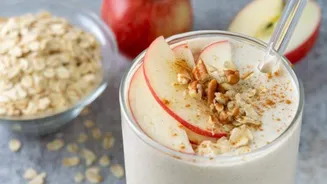Dietary Adjustments
The cornerstone of arterial health is often laid in one’s diet. Prioritizing a diet rich in fiber can significantly contribute to artery health. Foods
like oats, which contain soluble fiber, help bind to cholesterol in the digestive system, preventing its absorption and thus reducing the risk of plaque accumulation. Moreover, incorporating plenty of fruits and vegetables is essential, as they are packed with antioxidants. These antioxidants combat free radicals, which can damage artery walls and initiate plaque formation. Specific fruits like berries, rich in anthocyanins, and leafy greens, brimming with vitamins and minerals, can offer substantial benefits. Reducing saturated and trans fats is equally crucial. These fats elevate LDL cholesterol, which is a major contributor to plaque buildup. Swapping out processed foods and red meats for lean proteins, such as fish and poultry, can positively impact cholesterol levels. Emphasizing a diet that minimizes processed foods, refined sugars, and unhealthy fats can set the stage for clean, healthy arteries.
Regular Exercise Routine
Physical activity is another powerful ally in the battle against plaque buildup. Consistent exercise helps to improve overall cardiovascular health by enhancing blood circulation. Regular aerobic exercises, like brisk walking, jogging, swimming, and cycling, contribute significantly to artery cleansing. These activities help to increase HDL cholesterol (the 'good' cholesterol), which aids in removing LDL cholesterol (the 'bad' cholesterol) from the arteries. Aiming for at least 30 minutes of moderate-intensity exercise most days of the week can have a notable impact on arterial health. Beyond the direct benefits to arteries, exercise also helps maintain a healthy weight, which, in turn, reduces strain on the cardiovascular system. Moreover, exercise can improve insulin sensitivity, which helps to prevent the development of diabetes, a condition that can accelerate artery damage. Integrating exercise into one's daily routine is, therefore, a fundamental step in keeping arteries clean and functioning well.
Hydration and Water Intake
Staying adequately hydrated plays a crucial role in supporting arterial health. Drinking enough water contributes to healthy blood volume, ensuring that blood flows efficiently throughout the body. Proper hydration helps to prevent blood from becoming overly thick, which can reduce the risk of blood clots that may obstruct the arteries. In addition to water, consuming hydrating foods such as fruits and vegetables further helps to maintain optimal hydration levels. These foods often contain electrolytes that aid in hydration at the cellular level. Hydration also assists in kidney function, which helps to remove waste products from the body that, if accumulated, could negatively affect cardiovascular health. It is recommended to drink at least eight glasses of water per day, and more if one is physically active or lives in a warmer climate. Prioritizing hydration supports the body's natural processes, helping to cleanse the arteries and improve overall health.
Stress Management Techniques
Chronic stress can significantly impact arterial health. Elevated stress levels trigger the release of stress hormones, such as cortisol, which can raise blood pressure and contribute to inflammation, both of which can damage artery walls. Implementing effective stress management techniques is therefore essential. Practices like meditation, deep breathing exercises, and yoga can help to lower stress levels and support a healthy cardiovascular system. Regular practice of these techniques has been shown to reduce blood pressure and improve heart rate variability. Additionally, engaging in relaxing activities such as spending time in nature, reading, or listening to music can aid in reducing stress. Finding healthy ways to cope with stress is vital to prevent artery damage and promote overall cardiovascular well-being. Creating a balanced lifestyle, where stress is actively managed, supports long-term arterial health.
Natural Remedies and Supplements
Certain natural remedies and supplements may support arterial health. Garlic, for instance, has been researched for its ability to reduce blood pressure and lower LDL cholesterol. It contains allicin, a compound with potential antioxidant and anti-inflammatory properties, which may protect artery walls. Additionally, omega-3 fatty acids, commonly found in fish oil, have been linked to improved heart health. These fatty acids may help reduce inflammation, lower triglyceride levels, and prevent blood clots. However, before incorporating any new supplements into one's routine, consulting with a healthcare professional is vital. Another option is the use of turmeric, which contains curcumin, known for its anti-inflammatory benefits. These natural approaches may provide added support in cleansing the arteries and enhancing cardiovascular health. It is important to understand that these remedies should complement lifestyle changes and not be used as a standalone solution.














